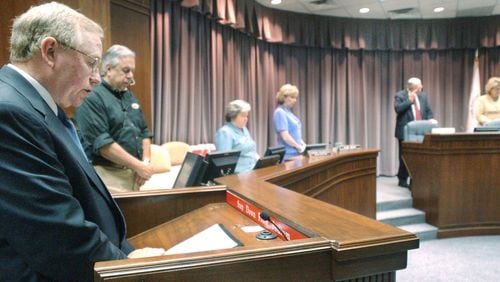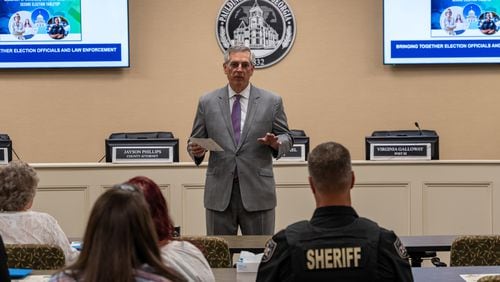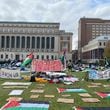The U.S. Supreme Court’s decision upholding a New York town’s practice of opening public meeting with a prayer will change little in Georgia.
In fact, the high court followed much of the same reasoning used six years ago by a federal appeals court in Atlanta, which allowed Cobb County to open government meetings with predominantly Christian prayers.
In 2005, seven Cobb residents filed a federal lawsuit seeking to halt that practice at board of commissioners and planning commission meetings. But the 11th U.S. Circuit Court of Appeals in Atlanta allowed the prayers to continue. Its 2008 decision noted that Cobb allowed religious leaders of all faiths to offer prayers at meetings.
At that time, then-Cobb Commission Chairman Sam Olens predicted the Supreme Court would eventually decide the issue.
On Monday, Olens, now Georgia’s attorney general, said the decision regarding the Town of Greece, N.Y., leaves the 11th Circuit’s decision relatively unchanged. “I am pleased that, like the 11th Circuit, the Supreme Court recognized that the 200-year tradition of prayer to open public meetings is consistent with the Constitution,” Olens said.
Justice Anthony Kennedy wrote in the Town of Greece decision that if invocations were required to be nonsectarian, it would require legislatures and the courts to “act as supervisors and censors of religious speech.”
This refrain was similar to one used in 2008 by 11th Circuit Judge Bill Pryor, who said the courts should have no role in parsing the content of public prayers so long as they do not advance a particular religion or disparage another.
“Whether invocations of ‘Lord of Lords’ or ‘the God of Abraham, Isaac and Mohammed’ are ‘sectarian’ is best left to theologians, not courts of law, ” Pryor said.
About the Author







